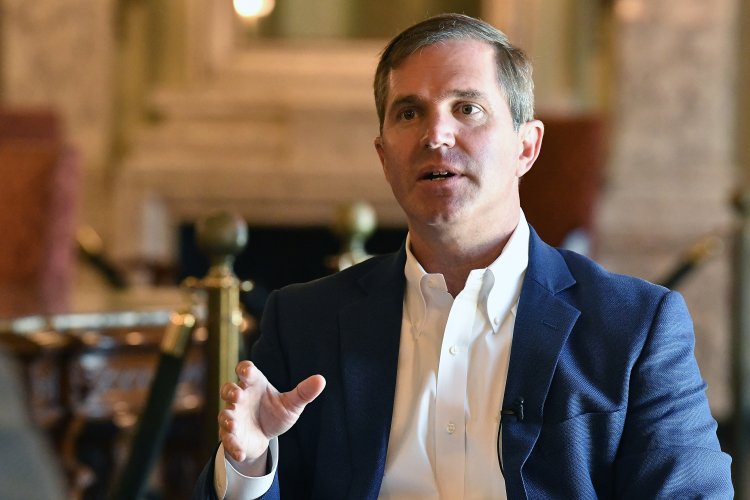Andy Beshear Offers Dems Tips on Criticizing Trump Regarding Tariffs
Following his appeal to Canadian officials to reconsider tariffs on liquor, he acknowledged that governors have limited authority regarding trade matters.

In a recent interview with PMG, Beshear, a possible contender for the 2028 presidential election, noted that there is limited action Democratic governors can undertake regarding international trade. This contrasts with California Governor Gavin Newsom, another potential presidential candidate, who has been actively urging trading partners to protect California-made products from retaliatory tariffs.
According to Beshear, Democrats should focus on launching a public information campaign to counter Trump’s trade policies, emphasizing the president’s original promise to lower costs, which now may result in higher expenses for Americans. He stressed the importance of highlighting that “he and he alone is making this decision, and he's out there owning it.”
This advice aligns with Beshear’s ambitions to elevate his national visibility, as he frequently appears on cable news and prepares to launch a podcast.
In the interview, Beshear discussed the ongoing engagement with Canadian officials about their tariffs on liquor, aimed at safeguarding Kentucky bourbon. He explained, “as a governor, you can have general conversations with leaders in other countries, but you can't engage in any type of tariff talks. Tariffs are entirely federal.” He emphasized that the adverse effects on Kentucky and the broader U.S. economy stem from decisions made by Trump, stating, “the people in my state who voted for him didn't vote to have the prices of everything that they need go up.”
Beshear pointed out that while tariffs are federally governed, Trump’s actions have direct consequences on state economies. He remarked, “there's no way around the pain that Donald Trump is causing,” reiterating that when significant economic mistakes occur, accountability should lie with the president.
When discussing his vision for trade, Beshear highlighted Kentucky's economic growth, noting, “We've had three of our best five years for economic development.” However, he expressed concern that Trump’s tariff strategy could disrupt this momentum, given that Japan is Kentucky's largest foreign investor. Beshear commented on the impact of tariffs on local industries, particularly citing the Toyota plant in Georgetown and stating, “to act like our economy isn't global and there aren't repercussions on the ground… that's just not reality.”
He further elaborated on the complexities of trade, stating that selectively applied tariffs can be beneficial but warned against broad tariffs, which economists largely view as detrimental.
Regarding the auto tariffs’ potential effects on the Toyota plant, Beshear noted that increasing U.S. part manufacturing would require years of investment. He mentioned, “if the idea is we will have a very aggressive tariff that will try to force that investment, well, that's two to five years of pain on the consumer.” He challenged Trump’s approach, arguing that his focus on tariffs contradicts the promise he made to voters concerned about economic issues.
With regards to the Republican response to tariffs, Beshear acknowledged that some GOP senators from Kentucky have begun to oppose the tariffs. He stated, “it should be the breaking point because it's impacting all American families, Democrat, Republican, independent.” His hope is that the coalition of disapproval across party lines could prompt change.
Beshear also emphasized the need for Democratic governors to use their platforms to speak out against the tariffs, while recognizing the necessity for grassroots pressure. He urged individuals affected by rising costs in essential areas like groceries and housing to share their experiences, asserting, “What it's going to take is the voice and the pressure of the people of the United States.” He believes that public sentiment against the tariffs is growing.
Aarav Patel for TROIB News
Find more stories on Business, Economy and Finance in TROIB business












